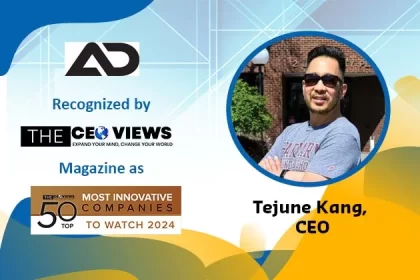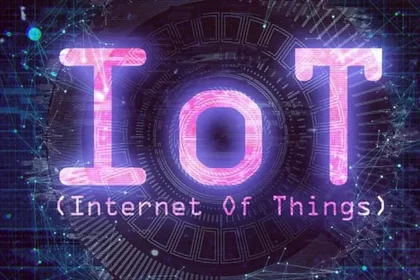Artificial intelligence is no longer a futuristic buzzword whispered in tech circles; it is a present-day force actively and fundamentally reshaping the entire digital marketing landscape.
For professionals in the field, this isn’t just another incremental trend to monitor—it’s a seismic shift that is altering the very ground on which marketing strategies are built. From the way brands conceptualize and create content, to how they connect with customers on a personal level, to the core mechanics of online search, AI is driving a revolution.
This is most powerfully underscored by Google’s new generation of AI models, which are redefining search and creating a new, more dynamic, and fiercely competitive arena of how an AI SEO company will operate in the future. In this rapidly evolving environment, simply adapting isn’t enough; a deep, proactive engagement with these technologies is now essential for survival and future growth.
How AI is Reshaping Digital Marketing
AI’s influence is both broad and deep, touching nearly every aspect of modern marketing strategy and execution. It is already transforming the field by enabling hyper-personalization at a scale previously thought impossible, automating the creation of compelling content, providing sharp predictive analytics for deeper customer insights, and automating a host of repetitive, time-consuming tasks.
This powerful combination allows marketing teams to offload tedious work and dedicate their valuable human intellect to high-level strategy, genuine innovation, and the kind of creativity that forges real customer connections.
Hyper-Personalization at Scale
For years, personalization meant little more than inserting a customer’s first name into an email. Today, AI-driven personalization allows an e-commerce site to dynamically reorder its entire homepage based on a user’s past browsing history, purchase data, and even real-time behavior. It can craft complex email campaigns where product recommendations, promotional offers, and content are all uniquely tailored to each recipient’s predicted interests.
Think of how Netflix’s recommendation engine keeps you engaged by suggesting content it knows you’ll love, or how Spotify’s “Discover Weekly” playlist introduces you to your new favorite artists. In a business context, this translates to a SaaS platform tailoring its onboarding tips to a user’s specific feature adoption or an e-commerce site dynamically reordering products based on supply chain data and local demand.
This is AI creating a one-to-one marketing experience for millions simultaneously.
Content Creation as a Collaborative Process
AI tools are now powerful creative partners. They can generate dozens of distinct ad copy variations for A/B testing in minutes, write initial drafts for blog posts, script short-form videos for platforms like TikTok and Reels, and even create unique, royalty-free images for marketing materials. This dramatically accelerates campaign development and allows marketing teams to test and iterate at an unprecedented speed. The role of the human marketer shifts from being a sole creator to a strategic director, guiding the AI, refining its outputs, and adding the final layer of brand voice and emotional nuance.
Predictive Analytics for Proactive Strategy
Beyond analyzing past performance, AI excels at forecasting the future. Predictive models can analyze customer data to assign a “lead score,” identifying which prospects are most likely to convert and allowing sales teams to prioritize their efforts. For e-commerce businesses, AI can:
- Predict customer lifetime value (CLV).
- Identify customers at high risk of churning.
- Forecast product demand to optimize inventory management.
This moves marketing from a reactive discipline to a proactive, data-informed science.
Intelligent Automation of Foundational Tasks
The efficiency gains from AI automation are immense. AI-powered tools can now handle social media comment moderation, generate detailed performance reports, perform complex SEO keyword clustering, and manage the intricate, real-time bidding processes for programmatic advertising. By automating these foundational yet time-intensive processes, AI frees up marketers to focus on strategic planning, brand building, and complex problem-solving.
The Game Changer: Google’s AI Overviews
While AI’s impact is widespread, the most significant and immediate development shaking the industry is Google’s global rollout of AI Overviews. These are comprehensive, AI-generated summaries that appear directly at the top of the search results page, aiming to answer a user’s query completely, without them needing to click away to another site. Powered by Google’s advanced Gemini model, these overviews synthesize information from multiple authoritative sources into a single, cohesive, and conversational answer. For businesses aiming to stay visible in this evolving landscape, adopting AI SEO strategies has become essential. These methods focus on optimizing content for AI-driven search systems, ensuring brands remain discoverable even as traditional rankings lose prominence.
The implications for marketers are profound and multifaceted. The most discussed consequence is the rise of “zero-click searches,” where users find the information they need within the AI Overview and feel no need to visit the source websites. For businesses whose models rely on high traffic volume for ad revenue or lead generation, this presents a direct challenge. It fundamentally changes the value of a #1 ranking, as being the top blue link is now secondary to being a source for the AI-generated answer.
However, this shift also forces a crucial change in perspective, moving the focus from traffic quantity to traffic quality. The users who do click through from an AI Overview are likely to be significantly more qualified and engaged. Having had their initial, top-level questions answered, their click indicates a deeper interest and a stronger intent to purchase, subscribe, or learn more. These are not casual browsers; they are highly motivated prospects, a trend noted in early analyses of AI’s impact on search traffic.
Furthermore, Google’s new “AI Mode” encourages a more interactive and conversational search experience. Users are now asking more complex, multi-step questions (e.g., “Find me a family-friendly Italian restaurant in North London that has outdoor seating, a gluten-free menu, and is open past 10 PM on a Tuesday”). This collapses the traditional, linear marketing funnel (Awareness > Consideration > Decision) into a single, powerful search moment. This demands richer, more detailed, and highly specific content from creators who want to be seen as a valuable resource by the AI.
How Marketers Can Adapt
Navigating this new terrain requires a significant evolution of traditional SEO strategies. To adapt and thrive, marketers must become more intentional, sophisticated, and holistic in their approach.
Double Down on Demonstrable E-E-A-T
Creating content that demonstrates Experience, Expertise, Authoritativeness, and Trustworthiness (E-E-A-T) is paramount. This concept, central to Google’s quality guidelines, means going beyond just writing good content.
- Experience: Showcase this with detailed case studies and hands-on product reviews.
- Expertise: Prove this with clear author bios, credentials, and qualifications.
- Authoritativeness: Build this by securing backlinks from reputable sites and highlighting industry awards.
- Trustworthiness: Foster this with transparent privacy policies, clear sourcing, and prominent customer testimonials.
Create In-Depth, AI-Resistant Content
Prioritize creating the kind of high-quality content that AI cannot easily summarize or replicate. This includes original research backed by proprietary data, nuanced opinion pieces with a strong and unique authorial voice, and highly detailed tutorials that go far beyond simple step-by-step lists. The goal is to become the definitive source that the AI must cite to provide a complete answer.
Master Conversational and Long-Tail Keywords
Your keyword strategy must evolve to match how people actually talk and think—a key element of effective AI search optimization. Adapt to conversational search by targeting long-tail keywords and full-sentence questions. Instead of just targeting “running shoes,” optimize for queries like “what are the best waterproof trail running shoes for a runner with wide feet and flat arches?” This specificity directly matches high-intent user queries and provides clear signals to the AI about your content’s relevance.
Leverage Structured Data and Multimodal Content
Enhance your site’s visibility by using structured data (schema markup) to explicitly tell Google what your content is about. Think of it as a translator that helps the AI understand the context of your information—is this a recipe, a product, an event, or a review? Furthermore, enrich your pages with high-quality, well-labeled visual and video content. As search becomes increasingly multimodal, providing clear alt text for images and accurate transcripts for videos gives the AI more data points to consume and feature.
Conclusion: Embracing the AI-Powered Future
The AI revolution presents both significant challenges and incredible opportunities. It’s a disruptive force that is rewriting the rules of digital marketing, and the pace of change will only accelerate. However, by creating high-quality, authoritative content and strategically adapting their methods, marketers can not only survive but thrive.
The future of the industry lies in a collaborative partnership between human creativity, strategic insight, and the analytical power of artificial intelligence. For those willing to learn, experiment, and embrace this new reality, the possibilities to connect with customers in more meaningful and effective ways are more exciting and endless than ever before.










